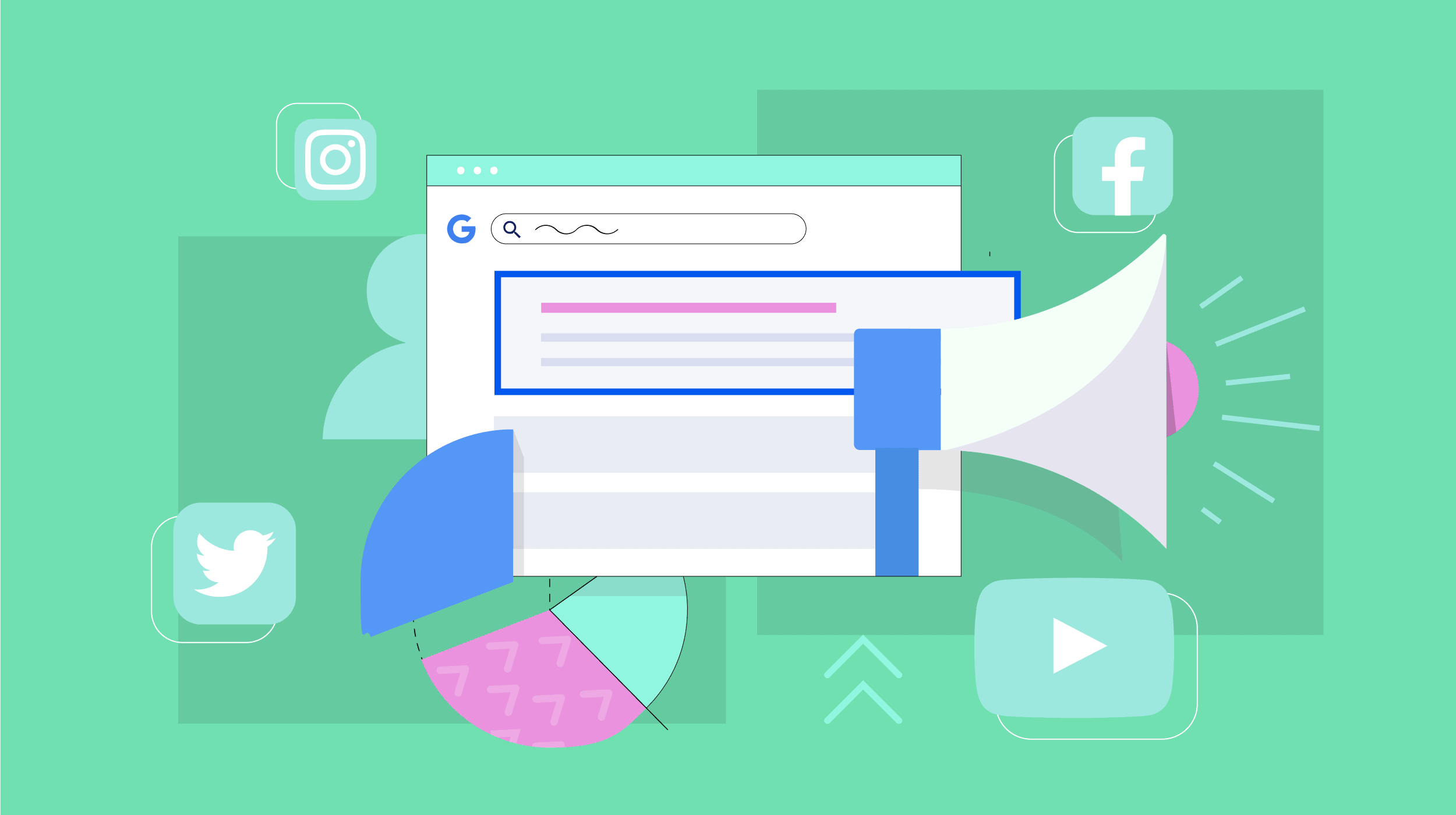Does Google Treat AI-generated Content on Your Website as Spam?
AI, also known as artificial intelligence, has transformed the way businesses operate, including the way content is created for websites. AI-generated content can be spotted more and more often on the web, and can be a valuable tool for...

AI, also known as artificial intelligence, has transformed the way businesses operate, including the way content is created for websites. AI-generated content can be spotted more and more often on the web, and can be a valuable tool for website owners who are looking for a cost-effective way of creating high-quality content.
There are, however, certain concerns about AI-generated content. Allegedly, search engines like Google may treat AI content as spam, potentially affecting website rankings and search visibility. Today, we’ll try to find out whether that is really true.
What is Google’s stance on AI-Generated Content?
According to representatives of the company, Google’s primary goal is always to provide users with high-quality, relevant, and informative content in its search results. While Google has not explicitly stated that AI-generated content is considered inferior, the company’s guidelines emphasize the importance of unique and valuable content that’s well-structured. If AI-generated content meets these criteria and offers value to users, it’s unlikely to be considered spam, unless the search engine detects plagiarism.
However, AI-generated content can sometimes be low-quality and repetitive, offering little to no value to readers. Such content may be flagged by Google’s algorithms, which can negatively impact search rankings. If you’re going to use AI-generated content, make sure to follow the best practices to minimize the risk.
The usefulness of AI doesn’t end with content. Companies like createIT use artificial intelligence to streamline the app development process, improve user experience, and add innovative features that were once considered impossible. AI can help in generating UI/UX designs, automate wireframing, predict user behavior, and even assist in writing code.
How to create effective AI content?
In a blog post from February 2023, Google confirms that no matter how your content is produced, if it’s high-quality, it’ll be rewarded. Always focus on quality and make sure your AI-generated content is well-written and relevant to your target audience. The content should offer unique insights, follow a proper text structure, and avoid factual errors.
Don’t simply copy and paste AI-generated content onto your website. Make sure you review the generated content first, fix any errors or awkward phrasing, and give it a human touch. While Google might not penalize AI-generated texts, your users will realize that the text lacks a soul if you rely on AI too much. An editor can help ensure the accuracy and relevance of AI outputs, maintaining the high quality of your content and reducing any chances of being flagged as spam.
Sometimes, especially if you phrase your prompts in a specific way, tools like ChatGPT can overuse keywords, which can negatively impact your SERP rankings. Don’t over-optimize your content, and if you spot the AI writing in a repetitive way, instruct it to correct the issue or simply have an editor correct it.
How to detect AI content?
Content generated by AI can be identified through language and style analysis. AI-generated content is often very precise, consistent, and technically accurate, with little to no grammatical mistakes or colloquial expressions. Furthermore, AI-generated content generally lacks personal anecdotes or subjective experiences that are typical of human-created works.
Additionally, context and relevance can also help with detecting AI content. It is easily identifiable by its formulaic patterns or generic nature due to its reliance on data inputs for production. As such, tools utilizing natural language processing and machine learning techniques have been developed to detect AI-generated works quickly and accurately.
There are already various programs on the market that detect AI-generated content. However, their effectiveness still leaves much to be desired. GTPZero claims to be able to detect AI-generated content, which is not entirely true. As part of the tests carried out, it should be stated that he has marked the content generated by chatGPT as human-generated more than once. Copyleaks certainly has no problems with identifying content generated by AI. It does a pretty good job of identifying AI-generated content from a variety of sources, not just chatGPT.
GPT-4 Technology
Advanced AI models like GPT-4 have made it increasingly difficult to detect the presence of these systems. GPT-4 surpasses its predecessor, GPT-3, in inability and natural language generation capabilities. It mimics human language and mannerisms; thus, detecting it is not easy – traditional indicators no longer prevail due to the wide range of natural writing styles and perceptible emotions found in GPT-4’s content. This technology continues to amaze me as its algorithms become more sophisticated enough to draw interest from a diverse range of contexts and people.
GPT-4 is a sophisticated AI technology with a variety of applications. Its contextual understanding, knowledge base, and ability to generate highly relevant content present challenges for detection even by experienced professionals. Furthermore, its breadth and scope of collected data allows GPT-4 to seamlessly weave facts and detailed information into coherent pieces which can be difficult to differentiate from content created by human experts.
In light of the difficulty detecting GPT-4 technology, it is paramount that individuals and organizations follow best practices when engaging with digital content such as exercising healthy skepticism8 and utilizing external verification methods where necessary. As such, researchers and developers are actively working on techniques and tools to identify AI-generated content in order to maintain trustworthiness online.
AI has made extraordinary progress in recent times, revolutionizing multiple industries and changing our lives and work environments. AI is an effective tool that can aid human experts in their work; however, it should never be seen as a replacement for specialists. It’s important to remember that AI works with the data it was trained on, employing algorithms for operation.
Humans always hold superiority when it comes to having contextual awareness, instinct, and subjective understanding of complex tasks – something machines are unable to do. Therefore, for duties requiring profound knowledge and skillset, professionals provide a unique experience, creativity, and critical judgment that cannot be replaced by AI alone.
AI can be a great asset when used correctly and with caution. It is capable of processing data incredibly quickly, comparing huge amounts of information that would otherwise take human specialists too long to process. Also, AI systems have the ability to recognize patterns in data that may not be immediately obvious to humans.
Employing AI technologies in combination with human professionals enables us to unlock powerful insights and gain a deeper understanding of complex situations. However, it is important to understand that AI systems are only effective when supplied with quality data and efficient algorithms, requiring expertise from both engineers as well as the domain specialists themselves for training, validating the working model, and preventing potential biases or unintended consequences.
AI technology can supplement the important human roles in fields that require complex problem-solving, empathy, and interpersonal skills. AI can provide helpful insights to healthcare workers, therapists, and other professionals by helping them make better-informed decisions with access to relevant data.
However, the response generated by AI must be complemented by human connection and emotional intelligence.

 Tekef
Tekef 






























